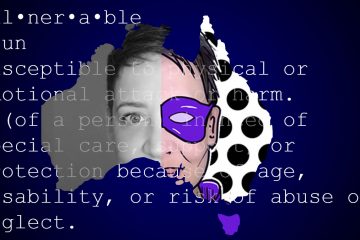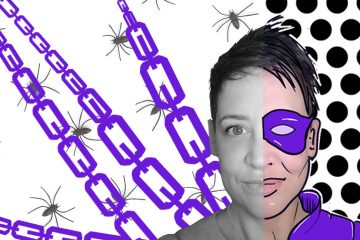The fairy tale is one of those things in life we rely upon to be comfortably predictable. This is epitomised with the much-loved phrase, ‘happily ever after’, or, as it sometimes goes, ‘and they lived happily ever after’. This satisfactory and, above all else, ‘happy’ ending is pleasing for us as readers. Not only do we see the characters we sympathise with being rewarded, but it allows us to picture them, striding off over the horizon going on to enjoy their future lives.
Now, I ask you to consider the story of Goldilocks, can you remember how this particular fairy tale ends? So, the Bears have made their absolutely-not-unusual-for-bears breakfast of porridge, and because it’s too hot to eat, they go out for a walk in the forest. It’s then our flaxen-haired heroine makes an appearance and commits what amounts to breaking and entering, petty theft and damage of property. Next, she wanders upstairs and promptly falls asleep in Baby Bear’s bed, but what happens then?
I’ve conducted a recent survey (with a massive data pool of 10), and 80% of people could tell me the story up to Goldilocks being in Baby Bear’s bed, and then I’d hear:
- ‘Uh, did she make friends with the Bears?’
- ‘Hmmmm, I know this, I’m sure I know this!’
- ‘Give me 2 seconds, I’m gonna ask Google.’
The common consensus (and by that, I mean the answer most often found on Google) is the Bears arrive home and find Goldilocks in Baby Bear’s bed. A kerfuffle ensues, which startles Goldilocks, who runs away and is ‘never seen or heard from again’. Well, that sucks as far I’m concerned; it’s just not good enough. Where’s my ‘happily ever after’?
(Now, this is going to feel like a colossal tangent, please bear with me.)
Nothing Remains Constant Except Change Itself
Throughout these past 3 months, I’ve written about the myriad changes I’ve been through because of epilepsy. This includes the changes in the type of seizures I have, how I’ve dealt with, and continue to cope with change and the anxiety it causes. Whether you’re a long-time epilepsy veteran, or recently diagnosed, I think you’ll agree that the one thing about this condition that is constant is the fact it’s always changing.
My current frustration isn’t the number of seizures I’m having but knowing whether or not they’re happening. I live alone, and I’m not aware an episode has happened unless it’s followed by a strange incident. I’ve no clue unless Epilepsy Goldilocks moves stuff around, falls down or wets herself. Although I can’t unequivocally say as much, since my VNS surgery in September 2018, I appear to be having fewer seizures. And this has really got my head in a spin; I’m not sure how to cope with this change. My entire adult life, I’ve been ‘Goldilocks who has seizures’, and I’ve never contemplated any other role.
It’s not a situation I ever thought I’d be in and one which I’m ashamed to say I’ve criticised. I’ve been angry at those who say they’re seizure-free and frightened, but I get it – now. I only heard ‘seizure-free’, I didn’t hear ‘frightened’. Now, I understand the terror that grows when it’s taken you 30 years, but you’ve learned to manage an erratic, life-limiting, sporadic condition. Then your seizures dissipate, so you need to learn a new way to live. All this combined with the knowledge that it can rear its head (at any f*cking point) because it’s spectacularly unpredictable.
OMG! A Real Live Audience, of Real Live Actual People?
So, rather than focus on something I have no control over (if I can’t change it, I accept it, right?) I started working on myself, to change the things I could. I figured I’d get ‘right’ within myself. You know, deal with those issues caused by carrying around the weight of chronic illness and denial. For me, that will always mean writing about it, and somewhat serendipitously along came Brain Ablaze. I’d drafted my story before but never as frankly, or with the knowledge it would read by real, live people.
I’ve had an incredibly intense 12 weeks, doing this has caused some sleepless nights. It’s impossible to write freely about stressful situations, anxiety, or episodes we associate with pain and not feel ‘odd’ afterwards. I’ve had some enlightening conversations. I’ve been able to ‘unpack’ events I haven’t previously understood or haven’t been able to share wholeheartedly with those close to me. It’s meant that the people I care about now have an increased understanding of where I’m at, and how I got here.
Within the last 12 posts, you and I have covered a lot, and I mean a lot, of ground. I made a pact with myself when I started, to write only about the stuff of which I’d had personal experience. So (and this is the only time I will ever get to say this, so I’m gonna enjoy it), the fact I’ve had a wild ride, epilepsy wise, has been a good thing. Within these posts, I’ve delved into diagnosis, mined management, explored injuries and ventured into VNS; all subjects, which over the last 30 years, I’ve come to know a little something about.
No Photos, No Photos, Please!
I took Goldilocks on as my persona to write the ‘Goldilocks Complex’ because she refuses to settle for anything less than ‘just right’. And, without wishing to ‘blow my own my trumpet’, the metaphor fits nicely when describing life with epilepsy. There has to be equilibrium or, quite simply, stuff feels like it’s falling apart.
I’ve written about my bleakest, darkest experiences and being able to do that, as Goldilocks, meant I could be candid. A pseudonym offered a buffer between the words on the page and my real life; I changed the names to protect the hesitant. She’s allowed me, without fear of consequences or repercussions, to share with you (and my family) how epilepsy affects me.
Although let’s face it, my ‘secret identity’ was never exactly a mystery; you only had to visit the home page to de-mask Goldilocks. I’ve laid out, for you and all the world to see, my epilepsy story, and it’s been nothing like I thought it would be. Don’t get me wrong, I haven’t been living under any illusions. I wasn’t imagining scenarios where I’d be wearing sunglasses at night or ducking out the back of restaurants to avoid the ‘pappzz’. However, after writing my last post, ‘What Your Thesaurus isn’t Telling You About Vulnerability’, it feels like something within me has changed.
All Good Things …
Epilepsy is more than seizures: it brings depression, isolation and feelings of inadequacy that are impossible to describe to those who don’t have the condition. Writing these posts has allowed me to be open about these emotions with myself, my troop and (most importantly) you. By providing me with a platform on which to write each week, David from Brain Ablaze has allowed me the opportunity to battle my demons. He’s helped me in ways I’ll never be able to explain, or sufficiently thank him.
I’ve revealed my entire journey with epilepsy in these posts, no holds barred; they’ve been challenging to write and demanding to share. I’ve confronted, head-on, issues I’d buried and uncovered ‘stuff’ of which I previously hadn’t been aware. Now, I’ve reached a point where my history has (quite naturally) caught up to where I am. It’s time to start looking forward, to my future, to what comes next. It’s an emotional position to be in; I’m in an exciting place.
As for Goldilocks, we left her in the middle of a commotion, startled and about to leg it into the forest, only to disappear forever. Well, I’m not jumping out of any windows (and without wishing to dampen any glamorous ideas you may have) I haven’t run since I was 7. But I am leaving, with decorum, through the front door. I thank the Bears for their kind hospitality (and pay for any broken furniture). And, in return, the Bears suggest I could ‘come back anytime, the door is always open’.
With that I am gone, to live (not happily, that’s never guaranteed but) happier ever after.
Because having epilepsy is like being Goldilocks: you can’t have too much, you can’t have too little; everything has to be just right.
Copyright © Jo Mackenzie 2020



0 Comments